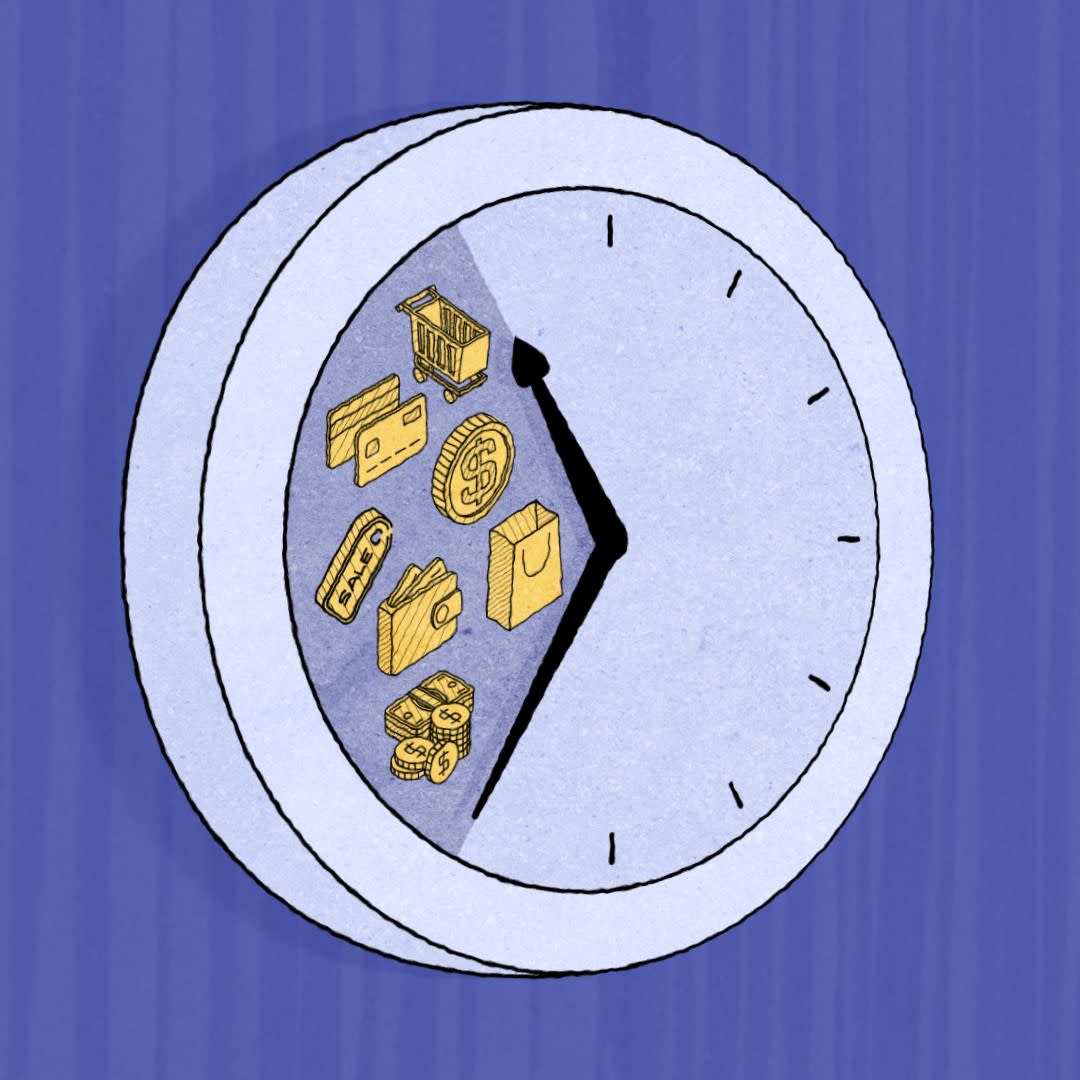These 4 people went on a spending fast. Here's what they learned.

You may already be familiar with the concept of a spending fast, also known as a shopping ban. This is a predetermined period where a person decides to stop spending money on certain items or purchase categories, usually in an attempt to curb an overspending habit.
If you're thinking about trying a spending fast for yourself, you may be wondering what the experience is actually like. We've got you covered with these four stories from real people who decided to limit their spending in some way — plus, some advice from a financial therapist who specializes in helping people regulate their spending.
My spending fast had the opposite effect
A few years ago, Philadelphia-based personal finance blogger Jon Dulin of MoneySmartGuides decided to try a spending ban to pay down his $10,000 credit card debt. He vowed not to spend any money on nonessential items, including eating out, buying new clothes and traveling.
“It worked great for a few weeks, but then I started to resent my debt because I wasn’t able to go out with my friends or do anything fun,” he said. “I ended up adding to my credit card debt because I gave in and overspent.”
After that experience, Dulin changed course and gave himself a preset limit for discretionary purchases every month. Having just a small allowance helped him feel less trapped by his debt.
“If you do decide to go all in, give yourself a break if you start to feel like you are missing out,” he said. “It’s better to freeze 80% of your spending than nothing or, worse, overspending.”
Dulin also recommends trying to freeze one category at a time. For example, stop buying new clothes for a month. Then, for the next month, stop buying unnecessary household items. Doing this one category at a time may be easier than not buying any discretionary items.
It helped me change my food delivery habits
For the past two years, Canadian personal finance blogger Jordan Bishop of Yore Oyster has not allowed herself to spend any money on Sunday. That includes a ban on both essential and nonessential items. She can spend money however she likes during the rest of the week, just not on Sundays.
A takeout fanatic, she started this spending freeze as a way to force herself to cook more. Now, she makes batch meals on Sundays to avoid ordering delivery on weekdays.
“The results have been great,” she said. “I cook all the time now, not just on Sundays, and really enjoy the process.”
If you find yourself constantly ordering meals from DoorDash or UberEats, consider specifically banning takeout for a period of time. You could also try limiting takeout purchases to once a week and learning how to meal prep.
I reset my impulsive shopping habits
Shannyn Allan of The Wonder Luster tackled a year-long shopping ban where she avoided buying anything unnecessary. That included clothes, home decor, accessories and pretty much anything she didn’t truly need.
Allan quickly learned that much of her spending was driven by giving in to momentary impulses. Because she was on such a strict shopping ban, she realized very quickly how often that impulse came up.
“When we take a step back and pause — separating the stimulus from the response — it can help us change habits in a big way,” she said.
Allan said she also learned that behind almost every purchase was some kind of emotion she was trying to avoid — one that shopping couldn’t necessarily fix.
“Whether we're hoping to be a better version of ourselves, treat ourselves after a long week or we are secretly competing with what our friends have, we have to slow down and examine those emotions once in a while,” she said.
My spending fast forced me to change my routine
After successfully tackling several no-spend challenges, Jen Smith wrote a book to help others learn how to complete a spending ban. As part of her spending fast, she tried to avoid spending money on anything nonessential, including extracurricular activities.
Smith said shopping bans forced her to get creative about how she spends her time, helping her find free ways to have fun.
“One of the biggest things I’ve learned over the years is that your habits have to change if you want to be successful,” she said.
Many people come into a shopping ban with a negative mindset and expect that it will be painful and difficult. This can set you up for failure.
Smith says people should come into a shopping ban with more of a curiosity mindset because they’ll learn much about their habits and tendencies. If you have a positive attitude about a spending freeze, you’ll ultimately get more out of it.
What a financial therapist says about spending fasts
Financial therapist Wendy Wright of Financial Therapy Solutions doesn’t necessarily recommend spending fasts. She said the extreme deprivation can lead to a subsequent shopping spree, just like going on a restrictive diet will often result in an eating binge.
“They’ve held their breath so long they have to gasp for air,” she said.
Instead of doing a strict shopping ban, Wright recommends practicing more mindfulness around your purchases. Before you buy anything, write down a detailed description of how you feel in that moment. This may help you decide whether or not you should actually buy an item.
“We’re helping to reduce reactivity,” she said. “We’re also reducing the magical thinking that a certain purchase is going to have a certain impact on your life.”
View the original article at Chegg Life and signup for the Chegg Life Newsletter
Related...

